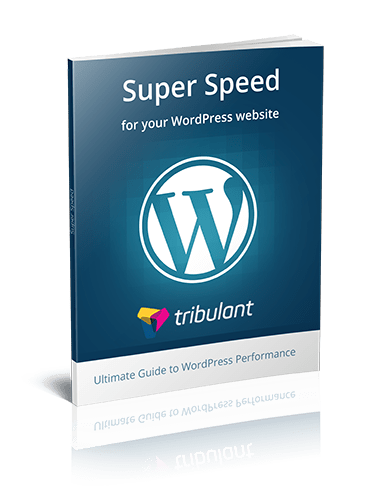10 Ways to Build Trust With Your Website Visitors
Building trust with website visitors is essential for any business in today’s digital age. With so many online options, visitors may hesitate to provide personal information without feeling secure and confident in the website and its offerings. They might find it difficult to make purchases on your website. Here are some tips you need to build trust with your website visitors.
1. HTTPS and Trust Badges
HTTPS is an encrypted version of HTTP-the protocol used to transfer data between a website and a user’s web browser. This encryption ensures that the information entered on your website is secure. A third party cannot intercept it.
HTTPS is essential for any website that collects personal information, such as login credentials or credit card information. You may show your visitors that you care about their security by using HTTPS. It proves that you are taking the appropriate precautions to protect their information.
Trust badges are symbols or logos that indicate that the website is trustworthy. These badges can include logos from well-known security companies, payment providers, or other industry organizations. Displaying these badges indicates that trusted third-party organizations have vetted and approved your website. Visitors are more likely to trust your website if they see these badges.
2. Provide Clear Contact Information
Your phone number, email address, and physical address can build trust with your website visitors. Your contact information shows that you are a legitimate business or organization. If visitors have any queries or issues, they can get in touch with you. Make sure that this data is correct and current. Incorrect information can lead to frustration and a loss of trust. It might cost your business, potential clients.
3. Use Customer Testimonials
Customer testimonials build trust with your visitors. They provide social proof that your products or services are of high quality and trustworthy. Visitors will likely trust your website if they see that other customers have had positive experiences with your offerings. ensure that these testimonials are genuine. Fake testimonials can harm your credibility. They are worse than having no testimonials. The best testimonials highlight the quality of your products and services and customer service. Embedding a Google Review widget is fast and simple. The no-code widget is compatible with any website. You can pick from various responsive fonts, colors, and layouts.
4. Offer a Clear Refund Policy
A clear refund policy is crucial in building trust, particularly for e-commerce websites. A clear refund policy demonstrates trust in your goods and services. This policy reassures visitors that they can trust your website and purchase without fear of losing their money. It’s vital to ensure that this policy is easily understood and prominently displayed on your website.
5. Provide Valuable Content
Valuable content can help build trust with your visitors. This content can include blog posts, articles, or educational resources relevant to your industry or niche. By providing this content, you demonstrate your expertise and knowledge, which can build trust and establish you as a thought leader. Ensure that this content is high-quality and provides value to your visitors. Hire a professional content writer for your website. They will help you create appealing content for your target audience.
6. Create a User-Friendly Website
A user-friendly website is essential in building trust with your visitors. Navigating your website should be easy. It should load quickly and have a clear and simple design. Visitors will likely trust your website if they can easily find what they want. The general experience should be positive. Your website must be optimized for mobile devices as more visitors access websites on their smartphones and tablets.
7. Educate, Don’t Sell
Educating your audience builds trust in your website. Visitors are looking for information or a solution to their problem. By providing valuable and informative content, you demonstrate your expertise and establish yourself as a credible source of information. This can help establish trust with your audience. They will sense your focus on providing value rather than just making a sale.
Educating your audience can build long-term relationships with them. They will likely return to your site for future information and recommendations. By prioritizing education over sales, you can create a positive impression of your brand. You can establish a loyal following of customers who trust and value your expertise.
8. Personalization
Personalization can significantly improve the credibility of your website. Tailor your website’s content and user experience to the specific needs of individual visitors. It creates a sense of connection that goes a long way in building trust and loyalty. It can take many forms. It can include personalized product recommendations and customized messaging based on past behavior or interests.
You can also use personalized landing pages for different audience segments. Personalization shows your visitors that you understand their unique needs. It proves your willingness to go the extra mile for them. It establishes your credibility and ultimately leads to increased conversions and customer satisfaction.
9. Use Social Media
Social media platforms are powerful for building trust with your website visitors. Regularly sharing valuable and relevant content on social media can showcase your expertise. It can establish you as a thought leader in the industry.
Engaging with your audience through comments and direct messages builds relationships and fosters trust. You can share testimonials, customer reviews, and case studies on social media to establish trust with potential customers. Consistently engaging your audience can build a loyal following. It establishes your website as a trustworthy source of information.
10. Improve Your Load Time
Improving your website’s load time can promote trust with visitors in several ways. First, a fast-loading website provides a better user experience, increasing engagement and conversions.
Visitors are more likely to trust and continue using a fast and responsive website. It conveys a sense of professionalism and reliability. A slow website can be frustrating for visitors, leading them to question the website’s credibility. They will likely leave and never return. Optimizing your website’s load time demonstrates a commitment to providing a positive user experience. It can build trust and increase visitor loyalty over time.
Building trust in a website is crucial for establishing credibility and developing a loyal customer base. Visitors who do not trust your website are unlikely to engage with it or make purchases. Trust is not something you can achieve overnight. You can earn it through consistent effort and commitment to providing a positive user experience. Ultimately, a website that has built trust with its visitors will be more successful in achieving its goals and growing its business.
WordPress Plugins
Start selling products, sending newsletters, publishing ads, and more through your own WordPress website using our premium WordPress plugins.



No comments yet